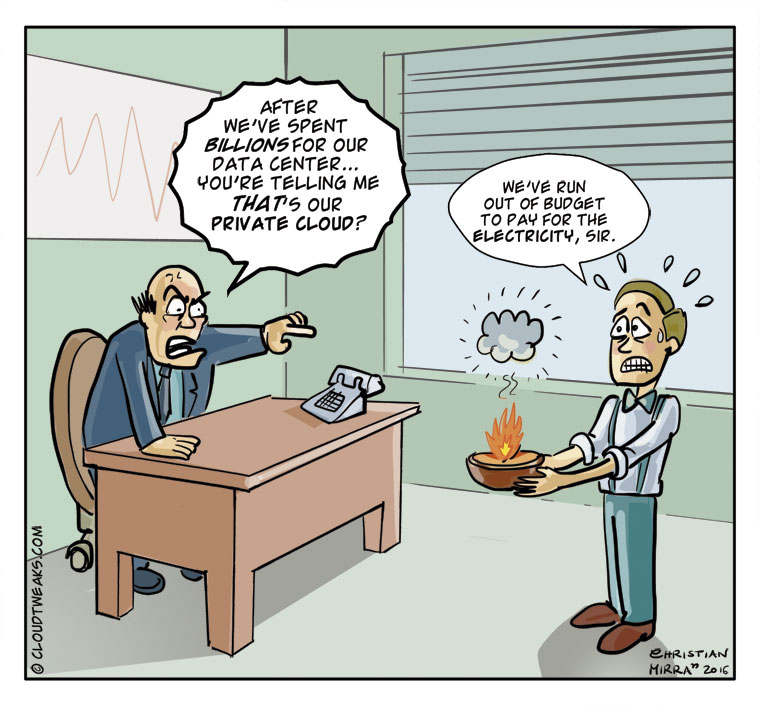
Looking for hosting solutions, you’ve definitely come across VPS and dedicated server hosting many times. But in recent years the probability of coming across some other hosting services, namely cloud hosting and bare metal hosting has grown exponentially. If you still don’t know the difference between these later solutions, then this article is a must-read for you. Otherwise, it can refresh some of your knowledge and help you make up your mind about whether one of these solutions is what you need and which one is a better choice for your project.
Cloud hosting

If you compare cloud hosting and VPS, you’ll have a pretty similar user experience. Both are created with the help of virtualization technology and both involve using the shared resources of physical servers, but in a way that resources you pay for are always at your disposal, which results in a combination of reliability, security, and stable scalable performance. What differentiates cloud hosting from VPS is that it’s a bit more advanced technology that involves not just sharing one physical machine, but rather creating a large network of machines, a part of the resources of which is delivered to each user. The benefit of it consists in the fact that it provides for maximum scalability in the shortest terms possible.
Renting a VPS, you usually have a website that has more or less fixed parameters, that don’t change too drastically over time – it has a certain size, runs certain applications that consume some certain amount of capacity, and has on average the same amount of visitors. Of course, as you grow, these figures grow as well – the number of pages increases, you create more content, more and more visitors are attracted, but this happens gradually, in a rather predictable and controllable way. Some projects, however, don’t work like this; instead of a fixed number of capacities that are paid monthly, they require quick changes to meet all possible opportunities. These can be either startups, that develop a bit like experiments with the probability of sudden and unexpected outcomes, or other projects that may require quick increases of certain parameters – a cloud storage service or a streaming service, or if you like to organize special offers that suggest increases of the number of visitors for a couple of hours.
Cloud hosting is very convenient in terms of flexibility as you can scale up and down your capacities within hours and be billed hourly as well. This is not going to replace VPS hosting for regular websites, but this can bring a lot of advantages to users with certain specific needs.
Bare metal servers
If cloud hosting can be called a bit trickier and more advanced version of VPS, bare metal server hosting is the same thing in regard to dedicated servers. If you remember well, dedicated server hosting is basically renting an entire physical server, with all its resources and advantages that result from it: the highest level of stable performance, the highest level of security, no neighbors that could in any way interfere with your performance, full control and customizability of your web-space.
Bare metal hosting, in turn, also consists in renting out an entire physical server to one tenant. However, the renting model differs. Unlike a dedicated server, which you can rent for at least a month and that is provisioned within several hours, a bare metal server can be rented and billed hour-based. This makes such servers conceptually closer to cloud solutions and makes them suitable for projects that develop more rapidly and unpredictably but on an even larger scale, which will work either for the same types of projects discussed in the section about cloud hosting, but in more resource-consuming scenarios, or for something like large-scale scientific researches that deal with computing involving big data, machine learning, etc, testing certain resource-consuming apps, and similar.
To be more adapted to any challenges, bare metal server plans are also based on more powerful hardware. Moreover, you can unify several such servers into a single virtual unit in order to achieve even more computing power.
Bare metals vs. Cloud: what is the difference?
To get a definitive idea of what is cloud and what is bare metal, and how they differ one from another, let’s summarize a bit what we have discussed above.
Both hosting services stand out in the flexibility they provide: they are rented on a pay-as-you-go basis, so they are best suited for projects with less predictable capacity consumption or for ones whose requirements increase just for a certain short period of time.
They both also cost significantly more, so you basically need a clear motivation to opt for this or that solution.
The difference lies in the number of capacities provided. Cloud is basically a more scalable solution, so you can always fine-tune the number of resources according to your current needs. Bare metal, in turn, is a more solid solution, which becomes relevant when your needs can’t be covered by a more modest cloud solution. This is less flexible, as you rent a complete server, not an adjustable part of a server or multiple servers in a network, but you still have a great deal of flexibility provided by the fact that you can rent one for a couple of hours.
Conclusion
We hope that now the concepts of the cloud and bare metal server are clear enough for you, so now you know exactly which one is optimal for your project.
By Valentyn Vodolazhskyi
Originally posted on November 25, 2022 @ 4:28 pm
